Thursday, July 26, 2018
City responds perfectly to complaint about black child selling food
/https%3A%2F%2Fblueprint-api-production.s3.amazonaws.com%2Fuploads%2Fcard%2Fimage%2F815121%2F362d0327-8e47-4133-8a04-049e557d7e54.jpg)
You'd think people would stop calling the cops on young black kids who aren't actually affecting their lives in the slightest, but here we are. At least this time the end of the story is a bit more heart-warming.
Jaequan Faulkner, 13, set up a little food stand outside of his home in Minnesota to help raise money for school clothes, and some heartless (read: racist) person called the police on him because he didn't have a permit to run a business. Instead of shutting Faulkner down, the Minneapolis Police Department came out in support of him and teamed up with the local health department to get him the permit he needed to keep running, the Associate Press reported earlier in the week.
The story gained steam throughout the week, garnering more national attention and becoming a popular Twitter moment Friday night. People who learned about the story sympathized with Faulkner and praised the police for encouraging his entrepreneurial spirit rather than stifling it.
If you want responsibe adults and entrepreneurs, you have to enable them, not harass them. Hat tip to the @MinneapolisPD https://t.co/IbIfczwEsi
— Carol Forden (@CarolForden) July 20, 2018
The local news station KARE 11 News reported on Faulkner's small business, calling it a hit.
We first met Jaequan Faulkner and his summer hot dog stand in June. Someone complained to the city. Instead of shutting his stand down, the city of Minneapolis stepped up to help the 13-year-old get his permit. Next on @kare11. pic.twitter.com/WYKA8rqzEz
— Heidi Wigdahl (@HeidiWigdahl) July 16, 2018
According to KARE 11, Faulkner started his hot dog and snack stand in 2016 with the help of his uncle, and he returned this summer after taking a break last year. Shortly after getting up and running, a complaint was made to the Minneapolis Department of Health about his food stand, AP reported.
Instead of attempting to shut Faulkner down, the city pitched in and took care of his $87 permit so he could keep selling his food and making money for school. Not only that, the health department contacted a local organization to give him some tips on keeping his business thriving and making sure everything is as clean as it can be.
Staff from @MplsHealthDept, Minneapolis Promise Zone and @NEONBusiness helped bring Jaequan’s Old Fashioned Hot Dogs up to code and officially permitted by the City. pic.twitter.com/gyYWhsHXwB
— City of Minneapolis (@CityMinneapolis) July 16, 2018
Stories about individuals calling the police on black people who aren't doing anything illegal at all or black kids who are just trying to make some money have been blowing up on the internet recently, with callers like Allison Ettel and Jennifer Schulte getting publicly roasted for their prejudiced behavior.
Although we don't know for sure who called in the complaint on Faulkner, it's nice to see local authorities being reasonable and helpful rather than antagonistic.
Original Article : HERE ; This post was curated & posted using : RealSpecific
=>
***********************************************
Read Full Article Here: City responds perfectly to complaint about black child selling food
************************************
=>
Sponsored by our friends from Met001.biz
=>
This article was searched, compiled, delivered and presented using RSS Masher & TrendingTraffic
=>>
City responds perfectly to complaint about black child selling food was originally posted by Viral News Feed 14
3 Reasons ‘Sweating For The Wedding’ Is The Worst Idea Ever Betches
If there are two kinds of people who have ruined the internet, it’s those who post about their workout routines, and those who constantly flaunt their engagements. There’s nothing that makes me smash the “unfollow” button like an unnecessary gym selfie or a hand unnaturally posed to show off an engagement rock. When you combine these together, you get the absolute worst person to follow: a bride-to-be who is sweating for the wedding.
Like, are these people even just trying to get skinny? Or are they just part of a months-long campaign to remind the world that they exercise and convinced someone to agree to spend the rest of their life with them? Anyway, sweating for the wedding is actually the worst idea ever, and here are a few reasons why. (Besides the fact that your fiancé is probably crushing craft beers and getting a head start on his dad bod while you’re sweating your self-tanner off at hot yoga.)
Sidenote: I would just like to point out that “sweating for the wedding” is a slant rhyme, and only rappers can really pull those off. It does not look cute on the faux gold foil tank top you bought from Etsy or Charming Charlie, and it certainly does not need to be Instagrammed. Okay, here we go.
You Are Literally Paying To Have Your Dress Altered
In Bride Wars, there’s a line where Anne Hathaway’s character gets told, “You don’t alter a Vera to fit you, you alter yourself to fit Vera.” I mean, yeah, this is kind of funny in a romantic comedy, but it’s bullsh*t when applied to real life.

Brides usually have about three dress fittings to make sure that their wedding gowns are perfectly altered to their body. There are literally people whose entire job is dedicated to helping you find a dress that you will look amazing in. Sure, I’ve never needed to fit into a wedding dress, so I may be naive. But I have had a crop top and denim shorts outfit that I really wanted to wear to a Wiz Khalifa concert once, and it didn’t look good, so I wore something else. Feels like a pretty solvable problem, no?
Restricting Your Alcohol Intake Could Ruin Your Wedding
Again, I have never been married, but I have completed a cycle of the Whole30 diet. And do you know what it taught me? That I effing love to eat grains, and that I never want to go an entire month without drinking alcohol ever again. I practically almost died the first time I drank after eating leaves and raw fish for a month, and if you take these measures to prep for your wedding, you’ll probably black out and ruin the entire night right after the Champagne toast. I personally believe that you should dedicate the weeks leading up to your wedding to building your tolerance so you don’t embarrass yourself. Puking at your own party is a lot worse than having a flabby armpit over your strapless gown.

Even if you’re not really concerned about ruining your alcohol tolerance, think about what’s going to happen to your delicate stomach when you try cake for the first time in months at your reception.
It’s Not Even A Good Way To Get Fit
I’m not a fitness expert, but basically every time one of them talks about debunking exercise myths, they mention the fact that fitness scams and quick ways to lose weight don’t work. Shocking, right? Who would have thought that a juice cleanse or cellulite cream would be anything less than effective? It’s fine to want to make changes to your lifestyle in order to improve your health and appearance, but unless you’re a beauty blogger making bank off a waist trainer, it’s counterproductive to try quick fixes.

If you’re serious about making a change, it should be a realistic lifestyle adjustment that not only makes you feel confident wearing a crop top to spin class, but makes you feel better overall, too. As a general rule of thumb, remember this: if a Kardashian is getting paid to promote it, it’s probably not legit.
Images: Giphy (3)
Original Article : HERE ; This post was curated & posted using : RealSpecific
=>
***********************************************
Source Here: 3 Reasons ‘Sweating For The Wedding’ Is The Worst Idea Ever Betches
************************************
=>
Sponsored by AMA News
=>
This article was searched, compiled, delivered and presented using RSS Masher & TrendingTraffic
=>>
3 Reasons ‘Sweating For The Wedding’ Is The Worst Idea Ever Betches was originally posted by Viral News Feed 14
19 Sentences from Today That Would Completely Baffle Someone from 30 Years Ago
Hey, want to feel old?
30 years ago, it was the year 1988.
Advertisement
There are SO MANY THINGS going on in today's world that would get this reaction from someone in the 80s:
The technology, the politics, the fashion trends! So much has changed!
A recent AskReddit thread asked people to write a sentence that would completely baffle someone from 30 years ago.
They did an amazing job.
Advertisement
How do you call anyone?
I don’t know anyone’s phone number but my own.
This next one might be the most confusing one of all.
Advertisement
How is that possible?
Lemme know when your tablet is done charging. I need to charge my cigarette and book.
Advertisement
Did she...die?
She totes ghosted me even though she slid in my DMs on Instagram first.
Advertisement
My watch just tells time...
My wife and I just had this discussion after I said to her, “Dad called while I was watching VR videos, and I couldn’t get my phone out of the goggles, so I had to take the call on my watch.” –EarhornJones
Advertisement
Why would you bring it anywhere?
“Damn, I forgot to bring my phone.”
This next sentence is full of words that would make anyone from 1988 think you’ve lost your mind.
Advertisement
Are you speaking English?
I Googled the directions and sent them to your phone. I’ll meet you there; I’m taking an Uber from work.
After dinner, did you want to Netflix and chill? –Quinthyll
Advertisement
O...K...
I tried texting her but didn’t get a response, but I saw she was still active on Instagram so I sent her a snap and she left me on read.
Advertisement
Impossible.
Advertisement
Is that some kind of cologne?
Do you reckon Elon is gonna send another car into space?
Advertisement
Why are you shouting about bells?
WHAT’S GOING ON everybody, welcome back to my channel!
Now before I go on, this episode is sponsored by dollar shave club and Squarespace (build it beautiful), please remember to hit subscribe, ring that bell to stay notified when I upload, and smash the like button.
Your thumbs up really help me out and makes sure that I can post more content for y’all. –kap_bid
Advertisement
Wut.
Hey, I’m gonna order the groceries online and pick them up later today, OK?
Share this with someone who grew up in the ’80s!
Advertisement
Original Article : HERE ; This post was curated & posted using : RealSpecific
=>
***********************************************
Learn More Here: 19 Sentences from Today That Would Completely Baffle Someone from 30 Years Ago
************************************
=>
Sponsored by AMA News
=>
This article was searched, compiled, delivered and presented using RSS Masher & TrendingTraffic
=>>
19 Sentences from Today That Would Completely Baffle Someone from 30 Years Ago was originally posted by Viral News Feed 14
And now, heres a Trumpy Cat augmented reality app from George Takei
Anyone who follows George Takei on Twitter can tell you that Star Trek‘s original Sulu is not a fan of President Donald Trump. But he’s found a new way to express that criticism — not just in tweets, interviews and op-eds, but also in an augmented reality app called House of Cats.
The app was built in partnership with Montreal-based development company BMAD, and it allows users to interact with animated animal characters like Trumpy Cat, Meowlania, Vladdy Putin and Lil’ Rocket Pug. They can add their own voice recordings, superimpose the animals on real environments and take photos with them — Takei suggested including Trumpy Cat in photos of real-world protests.
When I asked where the idea came from, Takei had a simple explanation: “The Internet loves the combination of politics and cats.”
While the app looks pretty silly, Takei made the by-now-commonplace observation that satire is having a hard time keeping up with the daily news.
We spoke shortly after Trump had his press conference with Vladimir Putin — setting off this week’s cycle of criticism, denial and missing double negatives — and Takei told me, “No augmented reality could have created the true reality of what we saw this morning: Donald Trump standing shoulder-to-shoulder with Vladimir Putin … his denial of the attack on the core activity of our democratic system.”
Takei added that humor is a key ingredient in getting a serious message out into the world. He’s pointed to his embrace of memes (particularly Grumpy Cat) as one of the main drivers of his popularity on social media, which in turn gives him a bigger platform for his political views.
“I’m a political activist — I have been since I was a teenager, largely because of my childhood incarceration behind American barbed wire fences,” Takei said. He said his social media presence is meant to be an extension of that activism, but, “I notice that if I’m documenting the truth, people are nodding off. [So] I try to kind of inject a little humor into it.”
The app costs 99 cents, and there are plans for subscription content as well. It might seem strange to pay money for a satirical cat app, but keep in mind that some of the profits will go to Refugees International.
“Making a mockery of this particular person is going to be a very effective tool,” Takei said. “We’ll have fun while we also accomplish our mission to make this a better America.”
Original Article : HERE ; This post was curated & posted using : RealSpecific
=>
***********************************************
See More Here: And now, heres a Trumpy Cat augmented reality app from George Takei
************************************
=>
Sponsored by E-book Vault - Free E-book's
=>
This article was searched, compiled, delivered and presented using RSS Masher & TrendingTraffic
=>>
And now, heres a Trumpy Cat augmented reality app from George Takei was originally posted by Viral News Feed 14
Wednesday, July 11, 2018
Trump signs an executive order to detain families together at the border indefinitely
President Trump has signed an executive order to reverse a practice recently enacted by his own administration that resulted in the separation of children from their families at the border.
The language of the executive order, titled “Affording Congress an Opportunity to Address Family Separation,” points blame at Congress, echoing Trump’s previous statements demanding that this issue be resolved through legislation, although it was not implemented through legislation.
The meat of the order:
Section 1. Policy. It is the policy of this Administration to rigorously enforce our immigration laws. Under our laws, the only legal way for an alien to enter this country is at a designated port of entry at an appropriate time. When an alien enters or attempts to enter the country anywhere else, that alien has committed at least the crime of improper entry and is subject to a fine or imprisonment under section 1325(a) of title 8, United States Code. This Administration will initiate proceedings to enforce this and other criminal provisions of the INA until and unless Congress directs otherwise. It is also the policy of this Administration to maintain family unity, including by detaining alien families together where appropriate and consistent with law and available resources. It is unfortunate that Congress’s failure to act and court orders have put the Administration in the position of separating alien families to effectively enforce the law.
The executive order proposes a “temporary detention policy” that would allow the Department of Homeland Security to detain families attempting to enter the United States at the southern border “during the pendency of any criminal improper entry or immigration proceedings involving their members.”
That portion of the order suggests that DHS would indefinitely detain a family together while any of its members await prosecution and potential deportation, a policy that looks likely to violate an existing court decision, Flores v. Reno. Because that legal precedent forbids the indefinite detainment of children at the border, the administration is likely gearing up for a clash in the courts.
Through the executive order, the president makes plain his plan to challenge the decision, known as the Flores agreement:
The Attorney General shall promptly file a request with the U.S. District Court for the Central District of California to modify the Settlement Agreement in Flores v. Sessions, CV 85-4544 (“Flores settlement”), in a manner that would permit the Secretary, under present resource constraints, to detain alien families together throughout the pendency of criminal proceedings for improper entry or any removal or other immigration proceedings.
As controversy around the southern border erupted in recent days, many major tech companies weighed in with vocal opposition to the Trump administration’s recent practice of separating adults who enter the U.S. illegally from the children they bring with them. Microsoft’s Satya Nadella also denounced the policy, though the company is facing both internal and external criticism over its previously announced intentions to supply deep learning and facial recognition software to U.S. Immigration and Customs Enforcement (ICE) through a lucrative federal contract.
Original Article : HERE ; This post was curated & posted using : RealSpecific
=>
***********************************************
Article Source Here: Trump signs an executive order to detain families together at the border indefinitely
************************************
=>
Sponsored by FreePLRArticles.biz
=>
This article was searched, compiled, delivered and presented using RSS Masher & TrendingTraffic
=>>
Trump signs an executive order to detain families together at the border indefinitely was originally posted by Viral News Feed 14
These 50 founders and VCs suggest 2018 may be a tipping point for women: Part 1
For the last several years, we’ve compiled profiles of women founders and investors at the end of each year because they’ve either raised substantial amounts of money or otherwise achieved notable milestones.
This year, we don’t want to wait until December. We’re too excited about the progress we’re witnessing, with women-led startups getting seed, Series A or later-stage funding each week — all while top venture firms grow more serious about pulling women into their most senior ranks, female VCs band together to fund female founders and other women go about launching their own funds.
Some of you will note that this list is far from comprehensive, and we’ll readily agree with you. But we think it’s better to celebrate the accomplishments of some of the women who deserve attention than try to capture every last person we’d include if only there were more hours in the day.
Herewith, a list of 25 founders and investors who’ve had a pretty good 2018 so far, with a second list of women in the industry coming shortly, so stay tuned.
Brynn Putnam, founder and CEO of Mirror

Harvard grad Brynn Putnam was once a professional ballet dancer, but she may eventually find more fame as a serial founder. Two years after her last performance in 2008 with a ballet company in Montreal, Putnam started a New York-boutique fitness studio, Refine Method, around a high-intensity, interval workout. It would later sprout into three studios in New York and attract the likes of Kelly Ripa and Ivana Trump.
Now, Putnam is using its founding principal — that gym users can wring more from their workout hours — to build yet another business called Mirror. Centered around an at-home device, it looks like a mirror but enables users to see an instructor and classmates for fitness routines like Pilates, all while tracking their performance on screen. Mirror isn’t available to buy yet, but investors are already sold, providing the company with $13 million in funding earlier this year so it can bring its product to fitness buffs everywhere.
Ritu Narayan, co-founder and CEO of Zūm

Ritu Narayan led product management at stalwart tech companies, including Yahoo and eBay, but her biggest challenge eventually became how to ensure that her kids got to where they needed to go during her working hours. She knew she wasn’t alone; there are roughly 73 million children under age 18 in the U.S., many of whom are driven around by frenzied parents who are trying to make it through each day.
Enter Zūm, a now 3.5-year-old company that promises reliable transportation and care for children ages five and older. Zūm isn’t the first kind of Uber for kids. In fact, another competitor, Shuddle, shuttered in 2016 after burning through more than $12 million in funding. But Narayan’s company appears to be doing something right. Earlier this year, Zūm raised $19 million in Series B funding, including from earlier backer Sequoia Capital, which is famously metric driven.
The company has now raised $26.8 million altogether.
Daniela Perdomo, co-founder and CEO, goTenna

When Hurricane Sandy cut off power in and around New York City in the fall of 2012, Daniela Perdomo and her brother, Jorge, were struck by the need for a network that would enable people to call or text even when there’s no Wi-Fi or cell signal. Today, that company, goTenna, is taking off, powered by an early device it created that pairs with a cell phone via Bluetooth to transmit messages using radio frequencies, along with a newer version of the device that allows them to create a kind of mesh network.
To date, the company has sold more than 100,000 units of its devices. It has raised roughly $17 million from VCs. In May, the company also partnered with an outfit called Samourai Wallet to launch an Android app that, beginning this summer, will enable users to send bitcoin payments without an internet connection. The move could prove crucial for some of its customers, particularly in disaster areas.
Chloe Alpert, CEO and co-founder of Medinas Health
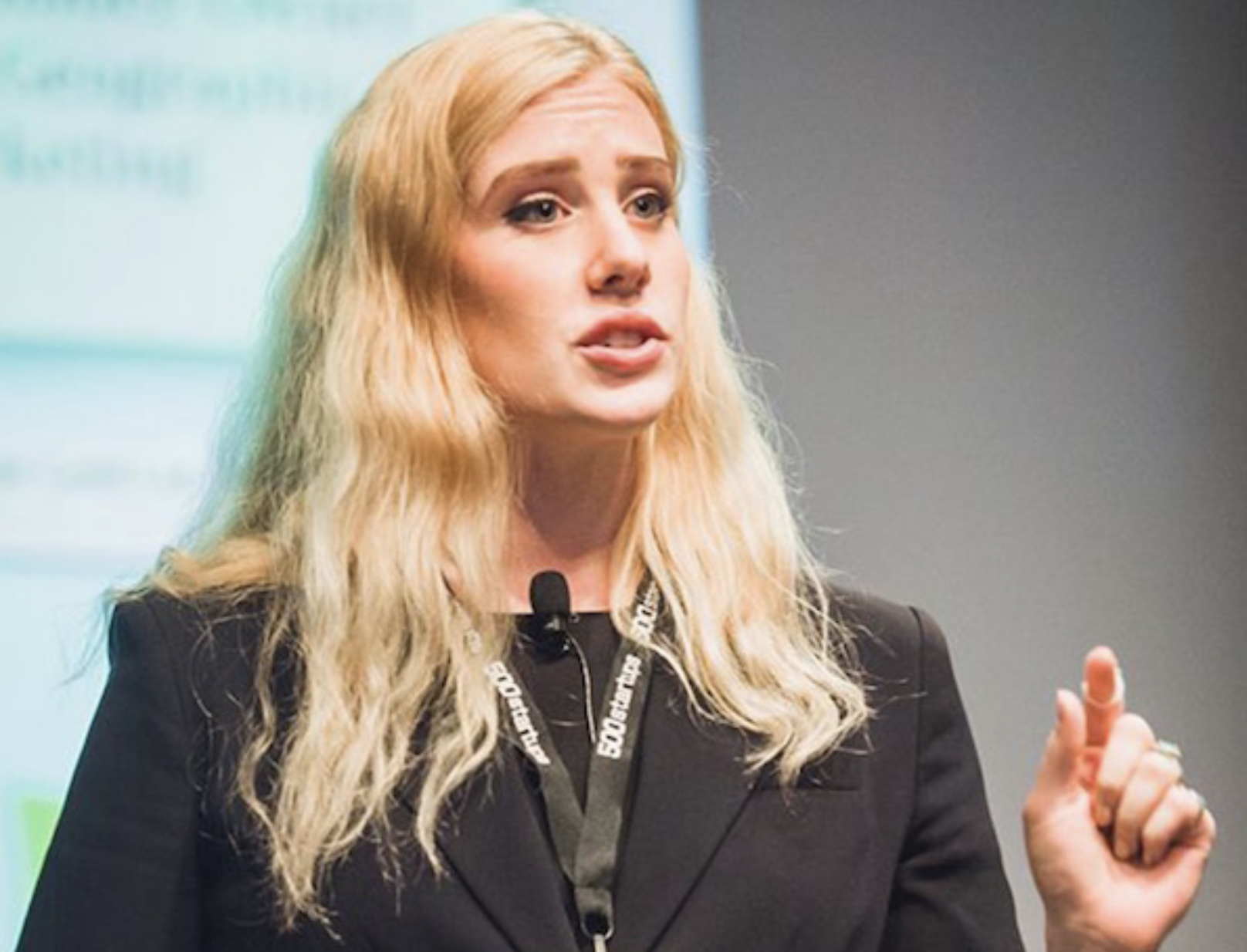
Hundreds of billions of dollars’ worth of surplus medical supplies are discarded every year, according to Chloe Alpert, the founder of Medinas Health, a Berkeley, Calif.-based startup that uses inventory data and matching software to help big hospitals sell excess equipment to small clinics and nursing homes.
Alpert thinks Medinas can create cost savings for both sides by creating something that’s fast and trustworthy and working with third parties who can disassemble, ship and re-assemble medical equipment.
Investors believe her surplus marketplace has a shot. Her 10-month-old company raised $1 million in funding earlier this year, including from Sound Ventures, Rough Draft Ventures, Precursor Ventures and Trammell Ventures.
Phaedra Ellis-Lamkins, co-founder of Promise
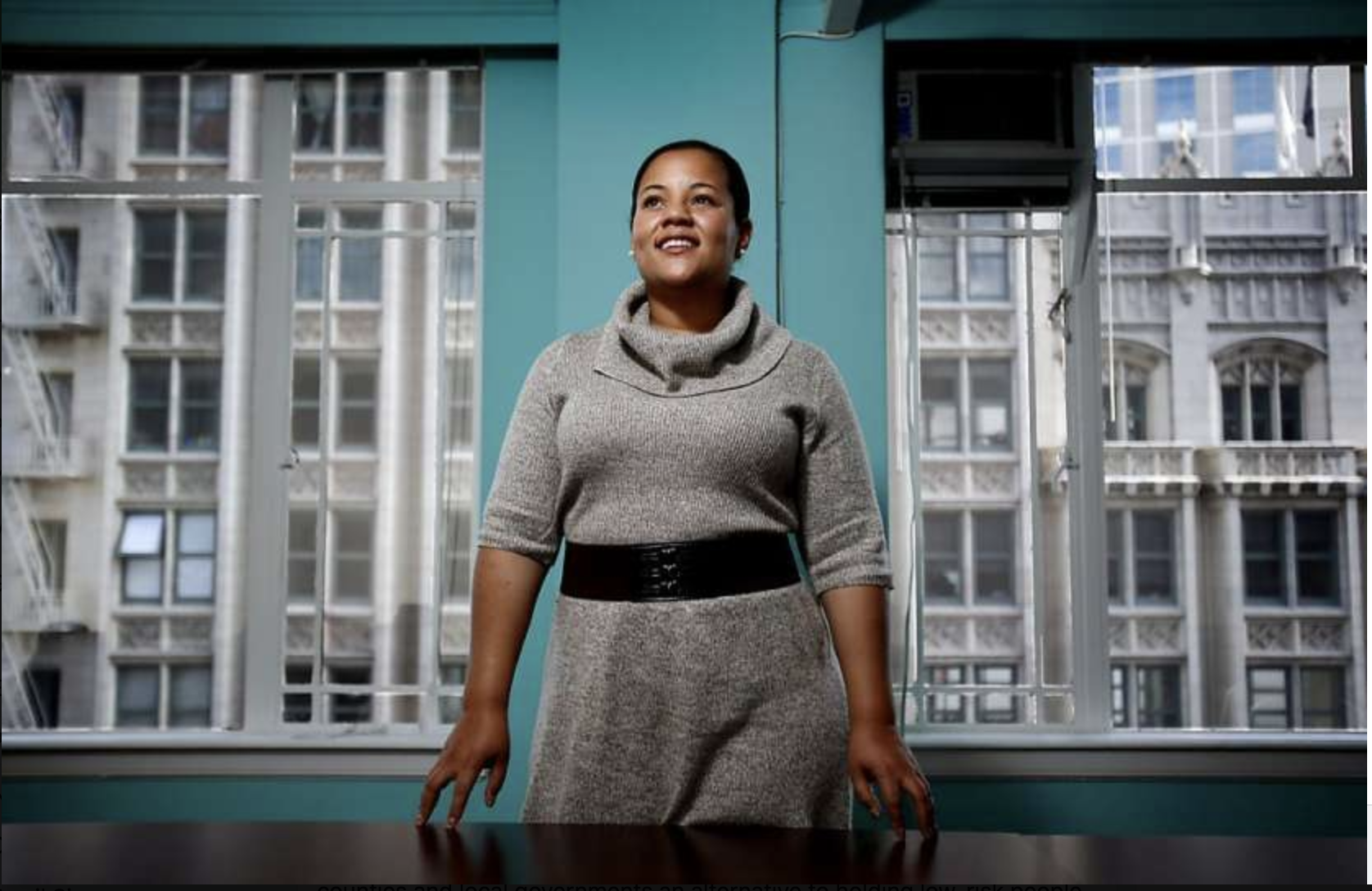 Phaedra Ellis-Lamkins was raised by a single mom who occasionally fed her two daughters with food stamps before a union job enabled the three to escape welfare. But that formative experience made a lasting impact. In fact, after graduating from college, Ellis-Lamkins worked for a union that helped organize low-wage home care. By the time she was 26, she was head of the San Jose-based South Bay Labor Council.
Phaedra Ellis-Lamkins was raised by a single mom who occasionally fed her two daughters with food stamps before a union job enabled the three to escape welfare. But that formative experience made a lasting impact. In fact, after graduating from college, Ellis-Lamkins worked for a union that helped organize low-wage home care. By the time she was 26, she was head of the San Jose-based South Bay Labor Council.
Ellis-Lamkins is far from done in her work to ensure that the disadvantaged can prosper. Her newest project: working in partnership with governments that release people from jail on condition that they work with her company, Promise. The big idea: Promise provides support to people caught in the criminal justice system to ensure they can return to their jobs and families until their case in resolved, rather than remain incarcerated because they can’t afford bail. The latter scenario happens all too often, agree VCs. Toward that end, earlier this year a handful of investors — including First Round Capital, Jay-Z’s Roc Nation, 8VC and Kapor Capital — provided Promise with $3 million to help put an end to it.
Jesse Genet, founder and CEO of Lumi
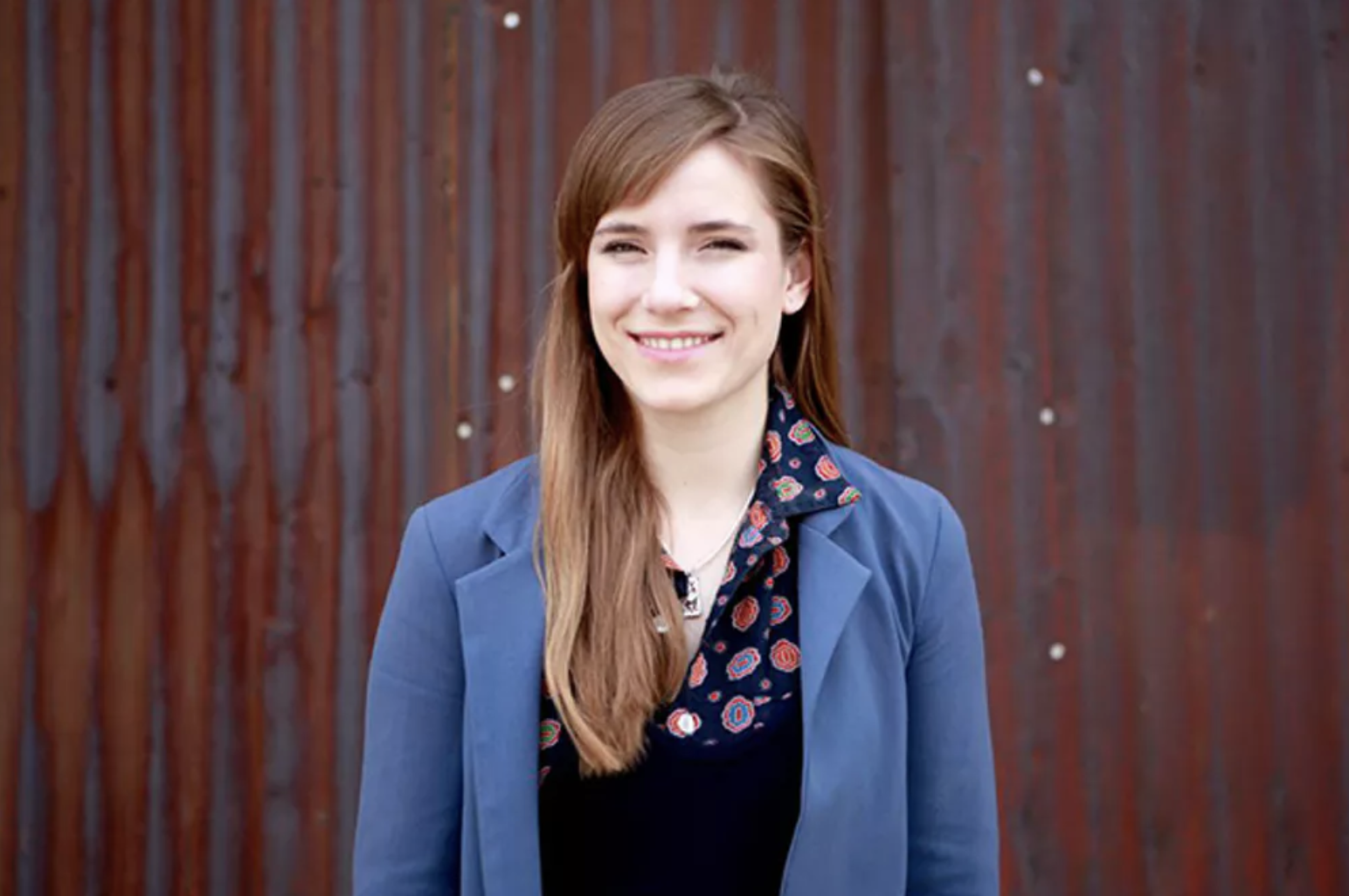
In 2014, Jesse Genet was trying to convince a panel of investors on “Shark Tank” to write her a $250,000 check for five percent of her company, which, at the time, sold photo printing kits online. Genet left empty-handed, but she didn’t give up, instead turning her company, Lumi, into a business that designs and supplies beautiful packaging for many top e-commerce companies that sell directly to consumers. It also landed $9 million in funding earlier this year led by Spark Capital, with participation from Forerunner Ventures and earlier investor Homebrew.
It’s been a process, but Genet seems to have anticipated it would be, telling Business Insider back in 2015, “One key thing is not to rush your own business . . . Even if you’re not making a ton of money, that experience of just living the company day-in and day-out, getting that feedback and experience, is something you can never replace.”
Sarah Guo, general partner, Greylock Partners

Sarah Guo didn’t necessarily set out to become a venture capitalist. She certainly didn’t imagine she would become one of the most senior investors at one of the oldest venture firms in the country. Yet Guo is both of these things, having been promoted last month to general partner at 53-year-old Greylock Partners five years after joining the firm as a principal.
For Guo, the appointment caps a lifetime spent in the world of startups. Before joining Greylock, she worked as an analyst at Goldman Sachs, where she led much of the bank’s coverage of business-to-business tech companies and advised public clients, including Twitter, Netflix, Zynga and Nvidia.
A graduate (for both her undergraduate degree and MBA) of the University of Pennsylvania, Guo also worked previously at Casa Systems, a 15-year-old tech company that develops a software-centric networking platform for cable and mobile service providers and that — in a twist that we think is pretty neat — was founded by her parents.
Charlotte Fudge, founder and CEO of CentralReach
 CentralReach builds practice management software for the developmental disabilities sector, with a focus on both research and practice. It isn’t the kind of company to make headlines, but the five-year-old, Pompano Beach, Fla., company managed to attract the attention of powerhouse firm Insight Venture Partners. Insight invested an undisclosed amount of funding in the company earlier this year, some of which CentralReach has already used to acquire Chartlytics, a behavioral change analytics software startup.
CentralReach builds practice management software for the developmental disabilities sector, with a focus on both research and practice. It isn’t the kind of company to make headlines, but the five-year-old, Pompano Beach, Fla., company managed to attract the attention of powerhouse firm Insight Venture Partners. Insight invested an undisclosed amount of funding in the company earlier this year, some of which CentralReach has already used to acquire Chartlytics, a behavioral change analytics software startup.
For Charlotte Fudge — a registered nurse who founded CentralReach and continues to lead it as its CEO — the developments have to be exciting. She has spent her career focused on people with autism and related disabilities; having the deep-pocketed support of an investor will presumably help her company reach more people than ever.
Emily Weiss, founder and CEO of Glossier
 Emily Weiss has been called the “millennials’ Estée Lauder.” It didn’t take long for her to get there, either. Indeed, a little more than three years ago, Weiss was still overseeing highly popular blog Into the Gloss when an early meeting with Kirsten Green of Forerunner Ventures helped move Weiss in a new direction: that of selling beauty products that cost a fraction of what some traditional brands charge and are pared back in every other way, too.
Emily Weiss has been called the “millennials’ Estée Lauder.” It didn’t take long for her to get there, either. Indeed, a little more than three years ago, Weiss was still overseeing highly popular blog Into the Gloss when an early meeting with Kirsten Green of Forerunner Ventures helped move Weiss in a new direction: that of selling beauty products that cost a fraction of what some traditional brands charge and are pared back in every other way, too.
Customers are fanatical about the company, whose Instagram counts 1.2 million followers and counting. Investors love the company’s look, too. In February, Glossier closed on $52 million in Series C funding in a round that it characterized as oversubscribed. The company has now raised $86 million altogether.
Anne Boden, founder and CEO of Starling Bank

There are powerful women in banking; there are powerful women in tech. Anne Boden is among a small but growing number of powerful women who are straddling both worlds, and her influence seems to grow by the month. The former COO of Allied Irish Banks and a former top executive at RBS and ABN AMRO before that, Boden is now founder and CEO of Starling Bank, a digital-only outfit that does its lending via smartphones, gained its U.K. banking license in 2016 and has big ambitions to expand across much of Europe.
Indeed, as rival challenger bank Revolut eyes the U.S., Starling — which has already raised a reported £48 million by hedge fund manager Harald McPike — is currently looking to raise another £80 million in fresh capital in an investor search that could potentially extend beyond the U.K. The company also quietly blew up a partnership with the fintech unicorn TransferWise, which it had partnered with last year to provide international payments capabilities. As Boden told TechCrunch last month of the move, Starling figured it “could provide a better user experience by doing it ourselves.”
Shruti Merchant, co-founder and CEO of HubHaus

When Shruti Merchant dropped out of a med school program in Concord, Calif., to move 40 miles away to San Francisco, she didn’t know anyone, so she and six other people who discovered each other on Craigslist rented a big house together and . . . they became great friends in the process. Merchant was already trying her hand at entrepreneurship, but the experience made her think a bigger idea might center on managing such co-living situations, so she co-founded HubHaus to do exactly that.
So far, so good, it seems. HubHaus, which rents out large houses and subleases out bedrooms, creating housing communities in the process, now oversees dozens of properties in L.A. and San Francisco. It also raised $10 million in Series A funding earlier this year, led by Social Capital.
Kathy Hannun, co-founder and CEO of Dandelion
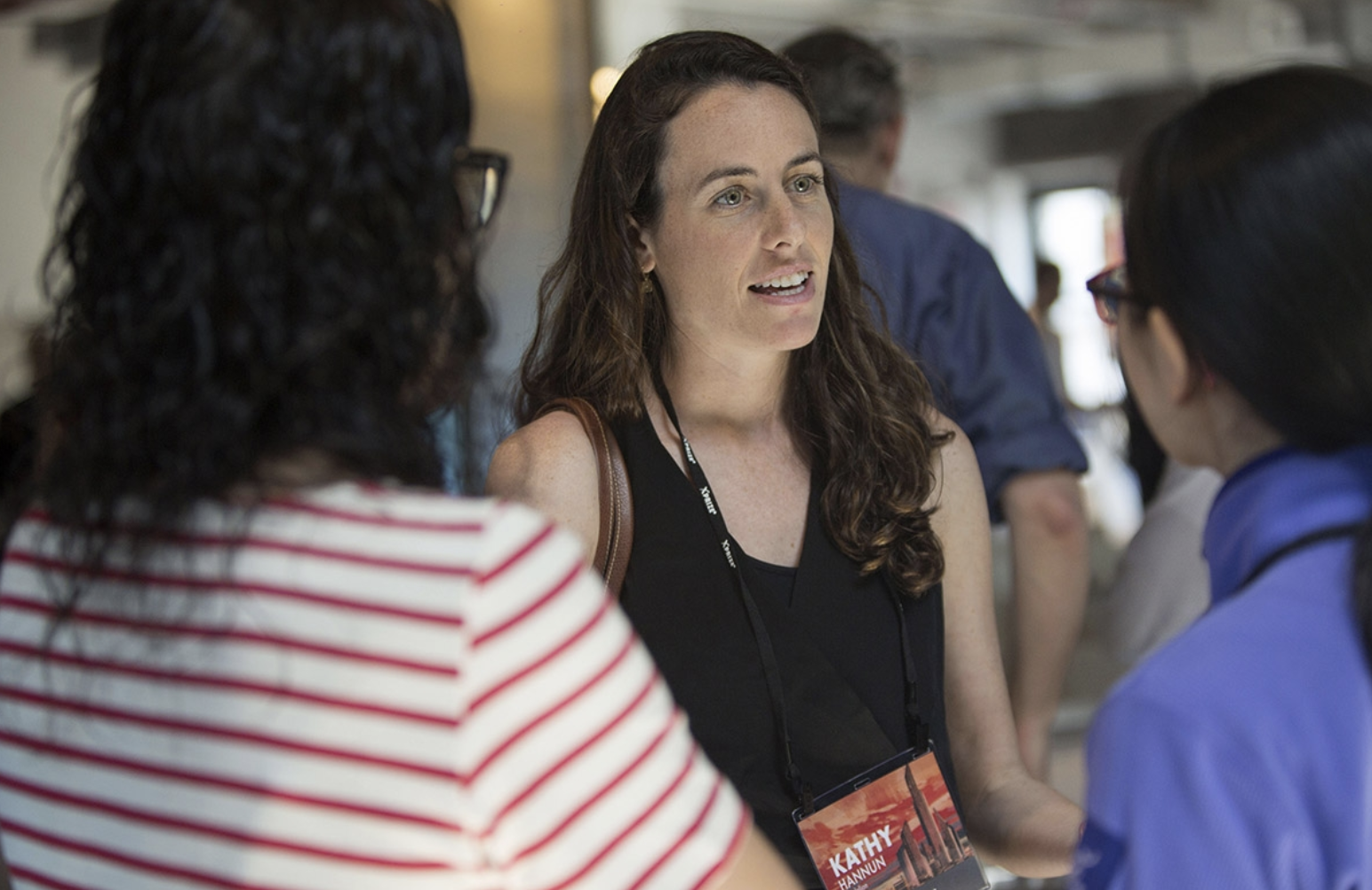
Nearly straight out of college, Kathy Hannun was brought onto the evaluation team of Alphabet’s X group, which is responsible for coming up with the next “moonshots” for the company. Eventually, she and several colleagues spied an opportunity too good not to pursue independently. The end result: Dandelion Energy, which says it makes “geothermal heating and air conditioning so efficient, it pays for itself.”
Investors certainly don’t mind relying on Dandelion. New Enterprise Associates, BoxGroup and others provided the year-old, Brooklyn-based company with $4.5 million in fresh funding earlier this year, bringing its total funding to $6.5 million to date. The day after the new round closed, Hannun had a baby.
Ran Ma, co-founder and CEO of Siren
 Ran Ma spent years as a biomedical engineer at Northwestern University and, before that, as research assistant at Johns Hopkins Hospital, working in nephrology, including as it relates to kidney disease. In those roles, Ma learned plenty, including that kidney disease impacts up to 40 percent of diabetics, and that diabetes afflicts roughly 400 million people — a giant percentage of whom are unable to feel pain from ulcers and gangrene, which can lead to amputations.
Ran Ma spent years as a biomedical engineer at Northwestern University and, before that, as research assistant at Johns Hopkins Hospital, working in nephrology, including as it relates to kidney disease. In those roles, Ma learned plenty, including that kidney disease impacts up to 40 percent of diabetics, and that diabetes afflicts roughly 400 million people — a giant percentage of whom are unable to feel pain from ulcers and gangrene, which can lead to amputations.
It’s those kinds of stats that compelled her to start Siren, a three-year-old, Copenhagen- and San Francisco-based company that’s making textile products that empower their wearers, starting with machine-washable and dryer-proof socks that can measure a wearer’s foot temperature to show him or her what’s going on through a connected app. (A heat spot, for example, can signal a burgeoning infection.) Investors certainly like Ma’s approach to helping diabetics detect potential injuries before they become debilitating. They provided the company with $3.4 million in funding earlier this year. Among those footing the bill: DCM, Khosla Ventures and Founders Fund.
Nicki Ramsay, founder and CEO of CardUp
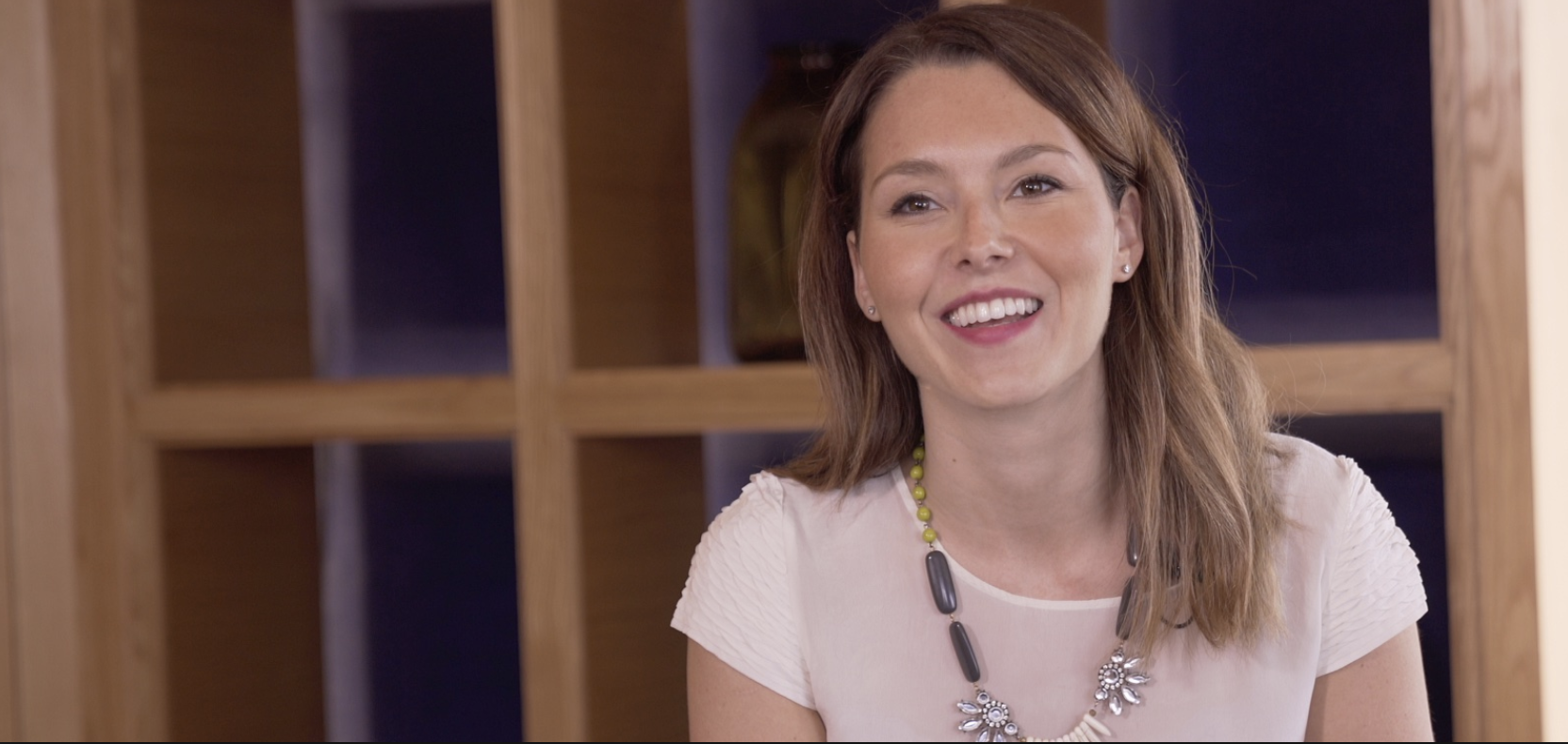
After spending roughly eight years with American Express in a variety of roles, Nicki Ramsay spied an unmet need. Specifically, AmEx customers couldn’t use their credit cards to pay for rent or taxes, among other things. Her solution: CardUp, a company that enables users to set up recurring payments to use their credit cards, from Citi, Visa, MasterCard and elsewhere, to pay for everything from rent to car loans to insurance to — in the case of small business owners — employees’ salaries, all while earning rewards. (Why just pay your rent, when you can pay your rent and get 70,000 air miles in the process?)
Investors clearly like the idea of providing incentives to users willing to use their credit cards as a financing tool. In March, Sequoia India and the seed-stage venture firm SeedPlus gave Singapore-based CardUp $1.7 million in seed funding, money it is using to grow its staff, as well as market itself to a growing number of small- and medium-size businesses.
Gwyneth Paltrow, founder and CEO of Goop
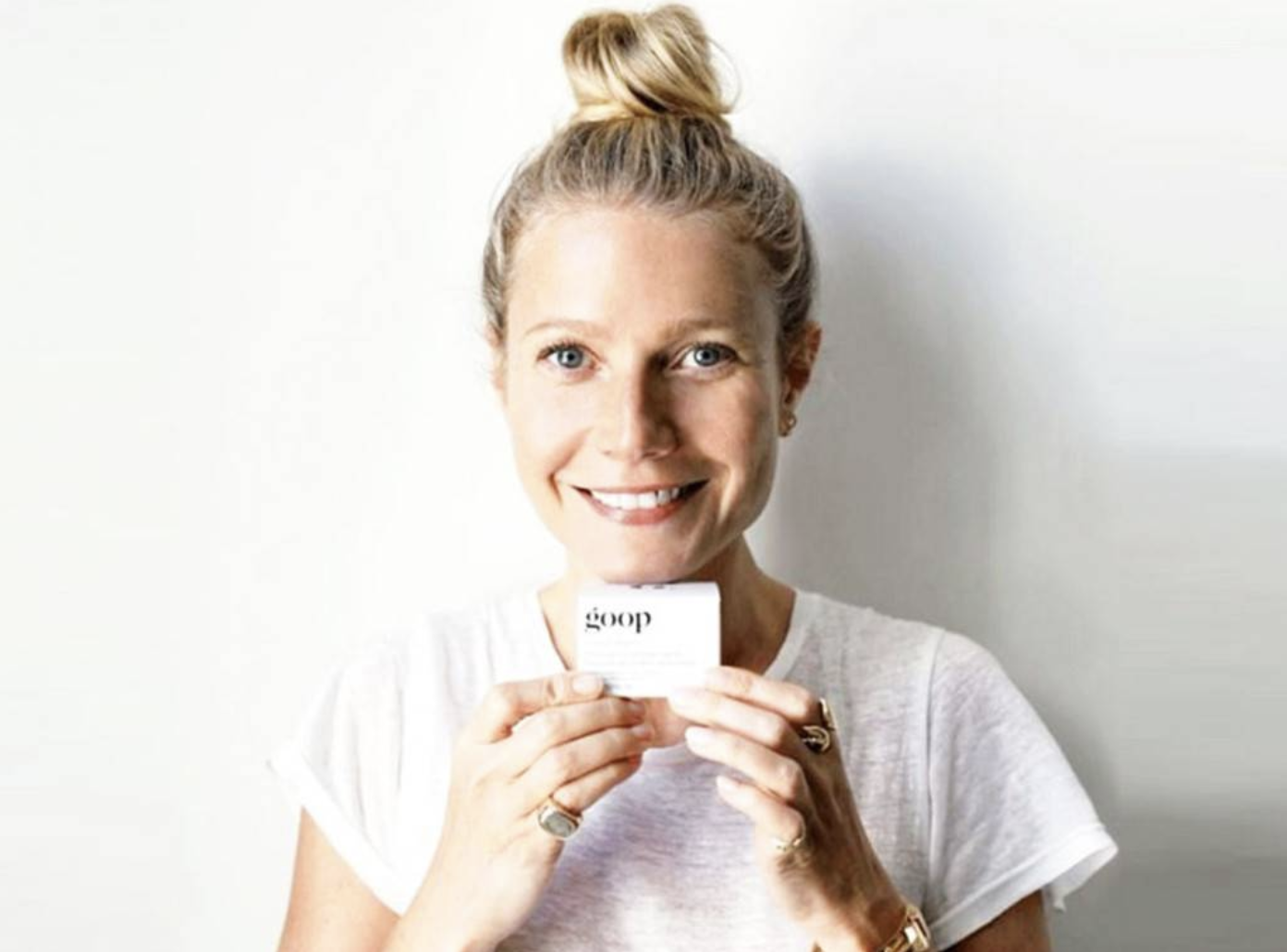
Goop, the wellness newsletter-turned-media and e-commerce company founded a decade ago by actress Gwyneth Paltrow, gets plenty of grief for its highly unscientific advice around vaginal steaming and the dangers of bras. Perhaps most famously, it has marketed jade eggs to its followers, suggesting that they put them in their vaginas to cultivate their sexual energy.
While funny to a great many people, Paltrow may get the last laugh. In March, her 150-person company raised $50 million in Series C funding from new and earlier backers, including New Enterprise Associates, Lightspeed Venture Partners and Fidelity, money that Goop intends to use to expand internationally, including through experiential retail, “image events” and through good-old-fashioned marketing.
Naomi Hirabayashi and Marah Lidey, co-founders of Shine

While Naomi Hirabayashi and Marah Lidey worked together at a nonprofit in New York, they formed their own personal support system with each other and close friends; they wanted to create something like it for others, too. There were already plenty of self-care apps, but none reflected their experience as women of color. As Hirabayashi told TechCrunch earlier this year, “We saw there was something missing in the market because well-being companies didn’t really reach us — they didn’t speak to us. We didn’t see people that looked like us. We didn’t feel like the way they shared content sounded like how we spoke about the different well-being issues in our lives.”
The product they settled on would become Shine, a startup that sends users a daily text with actionable tips around confidence, daily happiness, mental health and productivity to help them get through the day. Investors are feeling good about Shine, too, seemingly. Two years after raising seed capital, the company nabbed $5 million in Series A funding in April led by earlier backer Comcast Ventures, with participation from numerous other outfits, including The New York Times.
Ankiti Bose, co-founder and CEO of Zilingo

Ankiti Bose is the rare female founder in Asia’s startup scene, but that fact doesn’t seem to be slowing down her company in any way. Rather, Zilingo, an e-commerce startup that recreates online the experience of visiting Southeast Asia’s bazaars, raised $54 million in fresh funding in an April round that brings the company’s total funding to $82 million.
Why are investors so enthusiastic? Bose’s background — she worked both as a McKinsey analyst in Mumbai and later an as investment analyst for Sequoia Capital in Bangalore — certainly helps. But so does the market she is chasing. By providing a way for independent merchants to operate online storefronts, Zilingo is managing to compete effectively against the likes of Amazon in what’s expected to be an $88 billion market by 2025.
Aditi Avasthi, founder and CEO of Embibe

Five years ago, Aditi Avasthi decided to apply what she’d learned about economics at the University of Chicago and two years at Barclays to help students in her home country of India. The result was Embibe, a Bengarulu, India-based online coaching startup that tries to address not only access but also under-performance by taking a forensic approach to everything a student does online and trying to reach them when and where they most need help. The idea is to deliver far more accurate feedback — while simultaneously having to rely on fewer teachers.
Avasthi must be on to something. Earlier this year, the Indian conglomerate Reliance paid out $180 million to the company in exchange for a 73 percent stake in the business, a part of which came from Embibe’e earlier investors. It was a big win for these backers, Kalaari Capital and Lightbox, which appear to have provided Embibe with just $4 million in backing. Of course, it’s none too shabby a development for first-time founder Avasthi, either.
Katie Haun, general partner at Andreessen Horowitz
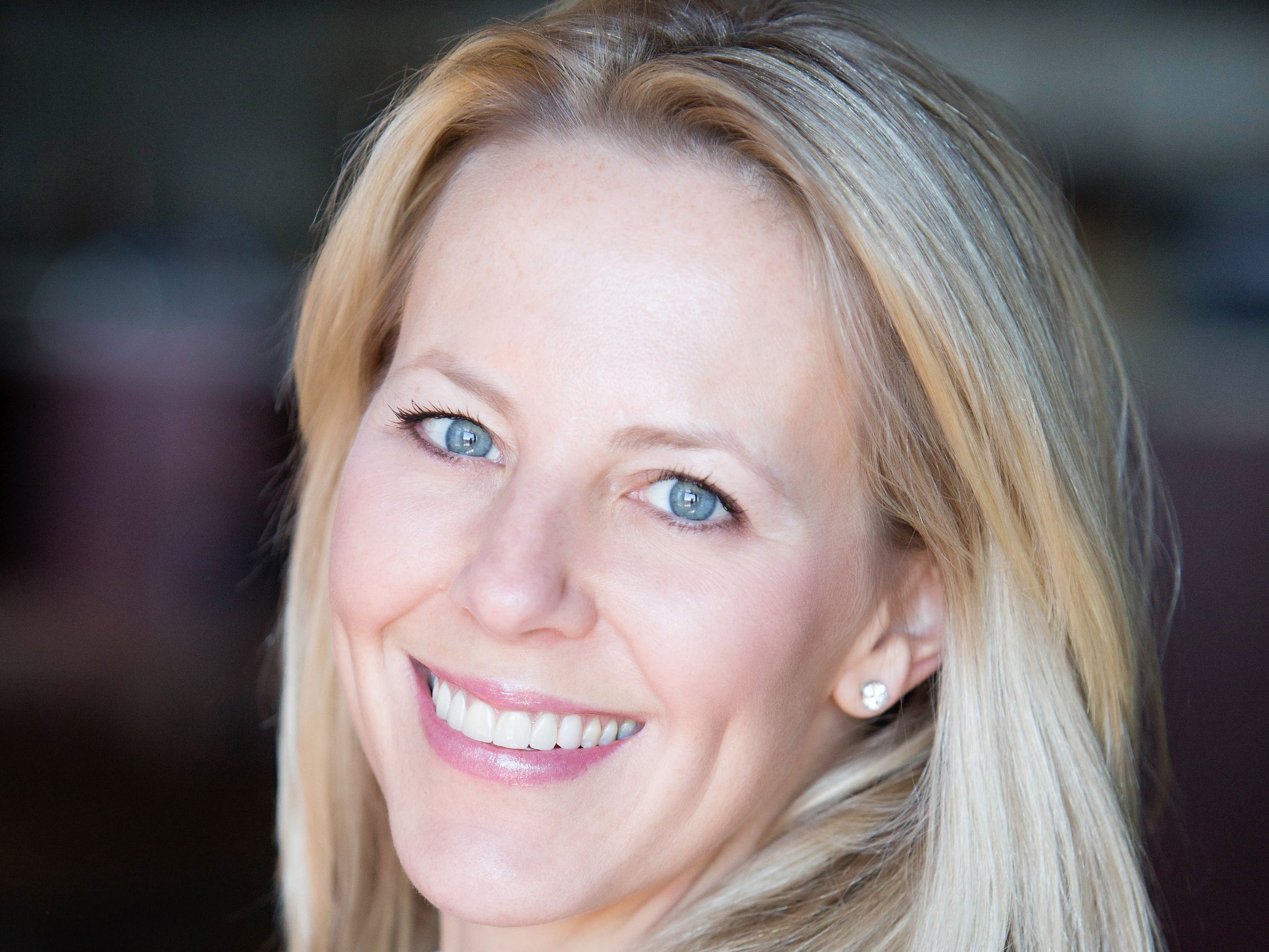
Earlier this week, nine-year-old Andreessen Horowitz (a16z) announced its first female general partner: Katie Haun, whose star has quietly been rising in the Bay Area over for the past couple of years. Haun, who is leading Andreessen’s new $300 million crypto fund with general partner Chris Dixon, is kind of a big deal, so it’s no surprise that a16z nabbed her.
Among her other many accomplishments, Haun spent more than a decade as a federal prosecutor with the U.S. Department of Justice, where she focused on fraud, cybercrime and corporate compliance no-nos alongside the SEC, FBI and Treasury. According to Haun’s bio, she also was the DOJ’s first-ever coordinator for digital assets, and she led investigations into the Mt. Gox hack and the task force that investigated and ultimately took down the online drug marketplace Silk Road. Haun is also a lecturer at Stanford Business School and she’s a director on the board of the digital exchange Coinbase, which was backed early on by a16z.
Sara Mauskopf and Anne Halsall, co-founders of Winnie
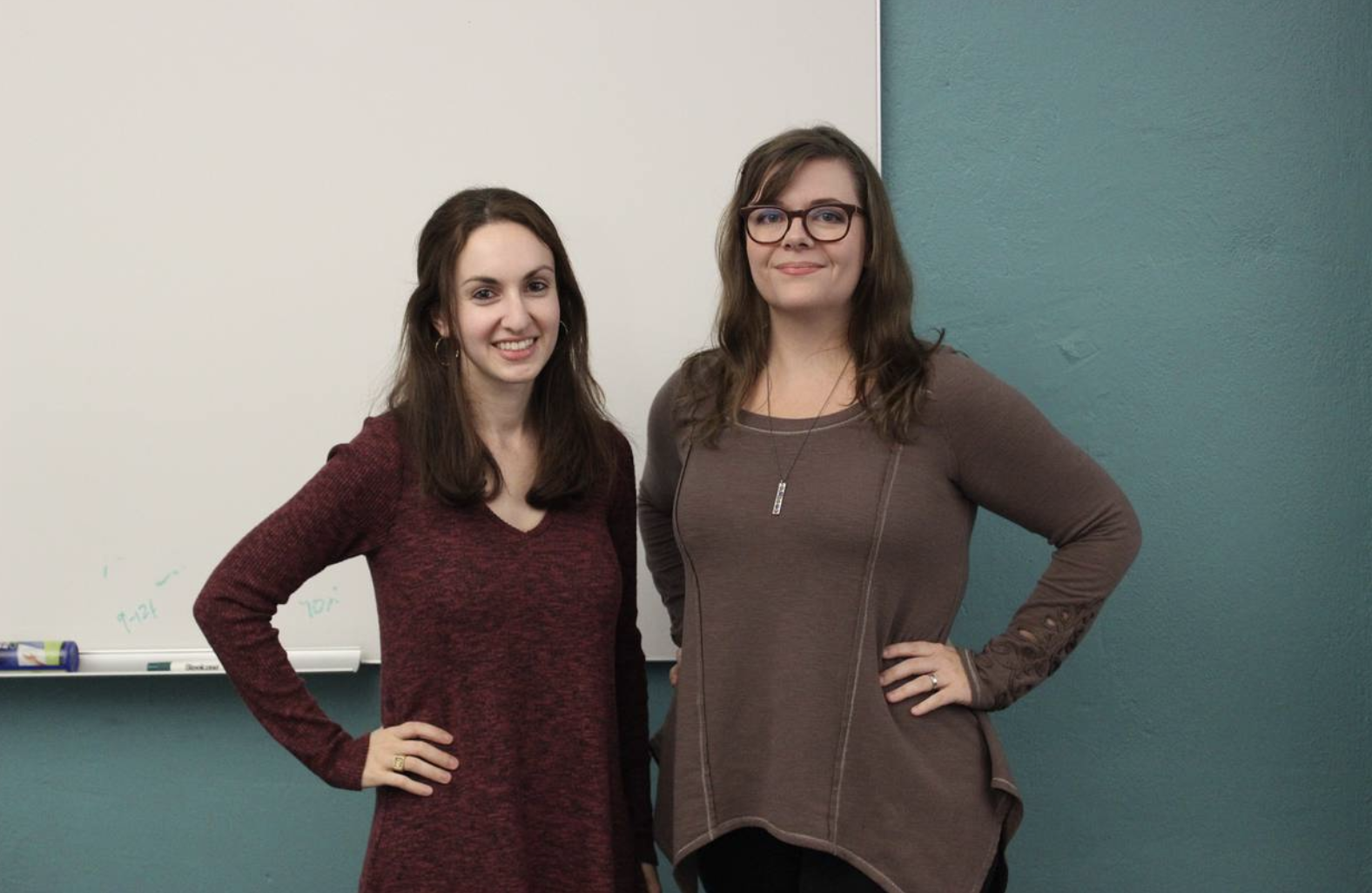
Sara Mauskopf and Anne Halsall know how to build products. Mauskopf spent most of the last decade working on products at Twitter, Postmates, YouTube and Google, while Halsall was doing much the same at Postmates, Quora and Google. No wonder that when the two came together to create Winnie — a mobile app that offers parents information about nearby kid-friendly places, what sort of facilities for families a location may have and, more recently, an online community where parents can ask questions and participate in discussions — investors took notice, investing $2.25 million in the company two years ago.
They haven’t lost interest. Instead, the now two-and-a-half-year-old app, which has reportedly surpassed one million users, just locked down a fresh $4 million in seed funding earlier this week, led by Reach Capital. Winnie has now raised $6.5 million altogether.
Falon Fatemi, founder and CEO of Node

Falon Fatemi used to take pride in becoming Google’s youngest employee at age 19. But after logging four years with the search giant and another two years at YouTube, Fatemi is making her mark by building her four-year-old startup, Node, into an ever-growing operation.
Just in April, the company — which makes an AI-driven search tool that helps people understand who in their professional network can be the most helpful at any one point in time and why — raised $5 million in fresh funding from Recruit Strategic Partners and Jeffrey Katzenberg’s WndrCo. The round brings Node’s total funding to $21 million altogether.
Renee Wang, founder and CEO of Castbox

Renee Wang was born in China and reportedly attended a boarding school in the rural countryside outside Beijing, tutoring her fellow students — while also teaching herself to code. Indeed, after graduating from Peking University with a double major, Wang found herself at Google, where she worked for the company in Tokyo for more than four years. It was there, from inside the search giant’s operations, that she could see spikes in user searches for podcast content and decided there was room for an app to dominate the space.
Enter Castbox, an app that uses natural language processing and machine learning techniques to power some of its unique features, like personalized recommendations and in-audio search. The app is also capable of suggesting what to listen to next based on users’ prior listening behavior, and its in-audio search feature actually transcribes, indexes and makes searchable the audio content inside podcasts. With so much going on, it’s no wonder investors are listening. In April, they gave Castbox $13.5 million in Series B funding. Altogether, it has raised $29.5 million.
Laura Deming, partner of Longevity Fund

Photo: Maarten de Boer/Getty Images
Twenty-four-year-old Laura Deming is younger than most of her venture capital peers, but she’s taken seriously nonetheless — and it’s no wonder. The New Zealand native was home-schooled, developing along the way a fascination with the biology of aging. In fact, before she was even a teenager, she found herself working in the lab of Cynthia Kenyon, a renowned molecular biologist who specializes in the genetics of aging. By the time she was 14, Deming was a student at MIT, and by age 16, she was a college-drop out, having been accepted into Peter Thiel’s two-year-old Thiel Fellowship program, which gives $100,000 to young people “who want to build new things.”
Build things, she has done. Last year, Deming closed her second venture capital fund with $22 million. Earlier this year, Deming took the wraps off an accelerator program, too, one with backing from famed investor Marc Andreessen, the early-stage venture firm Felicis Ventures, and other, unnamed investors. The idea is to help startups, especially those focused on late-onset medical conditions get to a significant “value inflection point” within four months, which is how long the program runs.
Original Article : HERE ; This post was curated & posted using : RealSpecific
=>
***********************************************
Original Post Here: These 50 founders and VCs suggest 2018 may be a tipping point for women: Part 1
************************************
=>
Sponsored by E-book Vault - Free E-book's
=>
This article was searched, compiled, delivered and presented using RSS Masher & TrendingTraffic
=>>
These 50 founders and VCs suggest 2018 may be a tipping point for women: Part 1 was originally posted by Viral News Feed 14
Johnny Depp & Vanessa Paradis’ Son Jack Is Battling ‘Serious Health Problems’

Johnny Depp's 16-year-old son with Vanessa Paradis is dealing with a serious health crisis.
Multiple outlets reported the news after the French musician and actress missed the premiere of her latest film on Tuesday to be with her son, Jack Depp.
Related: Johnny Is Getting 'His Life Back On Track'
Director Yann Gonzalez made the announcement at the Paris premiere of his movie A Knife in the Heart, revealing that Paradis was absent due to her son being very sick.
He said, according to the French outlet Public:
"Unfortunately, Vanessa Paradis was not able to join us tonight, she had to be absent because of her son's serious health problems."
Reps for both parents have yet to comment on the news, which comes as the Pirates of the Caribbean star is in Europe touring with his band, The Hollywood Vampires.
Paradis and Depp dated from 1998 to 2012 and share two children together — Jack and 19-year-old Lily-Rose Depp.
[Image via Jody Cortes/WENN.]
Related Stories
Original Article : HERE ; This post was curated & posted using : RealSpecific
=>
***********************************************
Read Full Article Here: Johnny Depp & Vanessa Paradis’ Son Jack Is Battling ‘Serious Health Problems’
************************************
=>
Sponsored by SmartQuotes - Your daily smart quote
=>
This article was searched, compiled, delivered and presented using RSS Masher & TrendingTraffic
=>>
Johnny Depp & Vanessa Paradis’ Son Jack Is Battling ‘Serious Health Problems’ was originally posted by Viral News Feed 14
Thursday, July 5, 2018
Tuesday, July 3, 2018
Papa is grandkids on-demand for seniors who need some extra help
Seniors over 65 are one of the fastest growing age groups in the United States, but they are still an underserved market. Many don’t need assisted living or in-home care, but they do need help with transportation and errands. Most of all, however, the elderly want companionship. Papa, a service that bills itself as “grandkids on-demand,” wants to fill the gap by connecting college students, called Papa Pals, with seniors.
Named in honor of founder and chief executive officer Andrew Parker’s grandfather, the Miami-headquartered startup is currently participating in Y Combinator’s accelerator program. Seniors can use Papa’s app (or a customer service line for those who don’t own a mobile device) to book a Papa Pal. Papa Pals might take seniors to the grocery store or doctor’s appointments, help with chores or teach them how to set up a new smartphone or tablet. They also provide company for seniors, many of whose own adult children or grandchildren are busy working or live far away. Papa is currently available in Florida and will began expanding into other states next year.
“What’s interesting is that people don’t always want to say they want companionship, even though their families say they do,” says Parker. “But when a visit ends up being six hours, that’s evident what it’s for.”
Before launching Papa, Parker was vice president of health systems at telehealth company MDLIVE. He lived near his grandfather, who had early onset dementia, and would often go over to help him with errands. One day, however, Parker was unable to go on a grocery run. Since his workload was increasing, Parker posted on Facebook for a helper. A woman named Andrea responded and after his family interviewed her and did a background check, she began assisting his grandfather regularly.
The experience made Parker realize there was a gap in the market for seniors who, like his grandfather, were mostly independent and don’t require a caregiver, but still needed occasional help from a trustworthy person. He decided to leave MDLIVE and began working on Papa to provide what he describes as “pre-care.”

Papa Pals are college students, many of whom are studying nursing, social work or hospitality. Before they are matched with seniors, Papa Pals undergo a background check and a motor vehicle records check and inspection. The company also asks them to complete a personality test. Parker describes the ideal Papa Pal as not only interested in working with seniors for career experience, but also outgoing, empathetic and patient.
“If you want to be a Papa Pal to make a couple extra dollars, then it’s probably not a good fit,” he says.
One of the most requested services is transportation. Many seniors need more than a Uber. They also want someone to help them shop and unload bags or sit with them in a doctor’s waiting room. Papa Pals also help with technology, like teaching seniors how to set up Netflix or video chat with their grandkids. The service starts at $15 an hour and a premium membership option allows seniors to interview Papa Pals, pick a team of helpers and request same-day appointments.
Parker says Papa has plans to expand into at least five states next year. The startup also wants to build an ecosystem of senior services, so when customers start to need more intensive services like in-home care, Papa can refer them to its partners.
While there are apps like Honor that help seniors find in-home caregivers, Papa’s on-demand service is unique. Parker says one of the things that will help it maintain an advantage against any future startup competitors is its backend, which enables it to match seniors with available Papa Pals quickly, whether they use its app or phone number. Papa Pals see an in-app dashboard that lets them accept appointments, then provides them with requests made by seniors or their families. The system also manages traffic and logistics and algorithmically calculates compensation for Papa Pals (on average, Parker says they make $20 to $30 per visit, which typically last about three hours).
Papa is currently gearing up for the introduction of new Medicare Advantage supplemental benefits that will cover some of the services it offers, like transportation to medical appointments. The ruling will go into effect next year and Papa has begun initial discussions with providers of Medicare Advantage, which has about 20 million beneficiaries.
Papa is also expanding its business-to-business model by working with partners, including senior living facilities, to offer Papa Pal services to their residents.
“Papa’s mission for the long run is to support seniors and their families,” Parker says. “We see ourselves at the beginning of the process.”
Original Article : HERE ; This post was curated & posted using : RealSpecific
=>
***********************************************
See Full Article Here: Papa is grandkids on-demand for seniors who need some extra help
************************************
=>
Sponsored by AMA News
=>
This article was searched, compiled, delivered and presented using RSS Masher & TrendingTraffic
=>>
Papa is grandkids on-demand for seniors who need some extra help was originally posted by Viral News Feed 14
The 10 Most Annoying, Unrealistic Myths About Love Making in Movies
It's no secret Hollywood takes creative license during the movies, but certain things should stay sacrosanct – by certain things, we mean sex. How many times have you watched a movie and mid sultry sex scene, you see something so totally asinine and unrealistic, your eyes are rolling all the way back into your brain.
"It literally doesn't work that way!" you want to yell at the screen, but you don't because then you'd startle your dog – (we're assuming you have a dog, or cat – maybe a pet chicken?).
Hollywood's unrealistic depictions of human sexuality are especially alarming because studies show that 80% of teens get their sex education from the movies and other forms of media. It's not a stretch to say that how teens approach sex is determined by what they see and hear in the media around them, which is why Hollywood needs to do better.
Here are the worst offenders.
Advertisement
10. Most Hollywood sex scenes look absolutely gorgeous.
Well lit, beautifully bronzed, physically taut people thrust themselves at each other in what amounts to an operatic show of physical passion.
Advertisement
It's all very impressive and all, but there's one huge problem – real sex is messy and awkward. It's fumbling around trying to figure out where to place what and whose what is which.
It’s damn sure not an opera, and Hollywood needs to stop selling a myth that makes the rest of us feel awkward for not reaching the splendorous heights of movie bliss.
Advertisement
9. People in movie sex scenes rarely seem to communicate with each other.
Either there’s rapturous background music, or a Sade soundtrack (it’s almost always a Sade soundtrack – just who exactly decided her voice symbolized sex?), or people are moaning their very loud enjoyment.
Advertisement
Every once in a while – if the movie is meant to be realistic, or the characters are meant to be despised – you get grunts and groans or a squeaky bed. Very rarely do you get actual communication.
And yet, sex, like most things is a series of communications: When last did you get tested? Are you on birth control? Get the condom. Where’s the lube? Wait – slower – no, faster – OMG, that doesn’t go there! A little bit more to the left!
Sex is a push and pull, a meeting of two minds and bodies. People should definitely talk waay more.
Advertisement
8. Movie sex usually goes on for hours.
When last did you have sex all night? Think about it. Really think hard and deep… When last did you engage in coitus, one act after another from sun up till sundown?
Advertisement
Don't remember? That's cause it literally doesn't happen. Most people need at least a few minutes of cool-off and what about sleep – that's important too (most of us have jobs).
Also, it would sort of be torturous to have sex all night. Think about how much lube you’d need to make it work, and even then – ouch! The next day would definitely not be a pleasant one…
Advertisement
7. No one ever has real problems taking off their skinny jeans.
It happens in every movie. The couple rushes in, and after a momentary fumble with zippers and the like – voila! – glorious bare skin bared to the object of your affections. It would be sweet, except… how in the hell did they get out of their skinny jeans so fast?
Advertisement
How many times have you struggled – nay, battled – with a pair of jeans, or.a too-tight dress, or a shirt that needed just that extra bit of massaging to come off without ripping?
Hollywood never seems to have problems with any iterations of the above, and that is one of the most egregious lies filmmakers tell.
Advertisement
6. People in the movies who have sex look perfect doing so.
Perfect hair, perfect skin, perfect makeup, perfect bodies thrusting in perfect sync. In real life, people’s bodies are not toned from 60 hours of combination crossfit and Krav Maga. Some of us have lumps and bumps and even *gasp* love handles, and those move during sex.
Advertisement
Also, that perfect shimmering skin dewy with the best Creme de La Mer money can buy? In real life, that's sweat running down your cheeks, ruining your foundation and working the devil's own hand on your mascara.
Raccoon eye sex is real, just saying.
Advertisement
5. People always roll over in the morning and kiss each other.
For why?
Morning breath is real, and who among us has not crept out immediately in the morning to go brush our teeth or do some stray bushwhacking (don’t act like you’d don’t know what I’m talking about).
Advertisement
For that matter, how come people never rush to go pee, or to do any of the other thousand odd bodily processes people need to process in the morning?
That roll over to kiss – definitely not a thing.
Advertisement
4. People never seem to suffer the after-effects of sex.
How many times have you watched a movie and this happens: our two fit, beautiful main characters (they’re always fit and beautiful) roll around in the sand making sweet passionate love, and then they fall asleep with the glow of the early morning sun lightly caressing their tawny, fit cheeks.
Advertisement
It's all very beautiful and poetic and yet... whatever happened to all that sand? Sand gets into things – all the cracks and crevices – especially when you're rolling in it. How come no one ever jerks up screaming because they got sand in their unmentionables?
For that matter, what about rug-burn? People are always tossing each other onto priceless Aubusson rugs and such, and no one ever seems to suffer for it.
Why’s that?
Advertisement
3. In movies, people (actresses – we mean actresses!) always gorgeously wear their partner's shirts, or even the sheets, and they always look fab.
Somehow, in Hollywood, the woman is always way smaller, even though the average American woman is now a size 14 – positively Rubenesque by Hollywood standards.
Advertisement
And the sheet thing – not everyone can tie a good sheet. And that's assuming they won't drown in all the folds.
And that’s another thing – how come the sheets are always perfectly sized to the actress? Standard sheet sizes are twin, queen, and large – so are all actresses having sex on twin-sized sheets? More to the point, are all twin-sized sheets actress sized?
Food for thought…
Advertisement
2. In movies, women always spontaneously orgasm without any help.
It never fails, the moment two people of the heterosexual determination get it on in the movies, the woman begins to moan loudly (and sexily) without any help and she always falls apart in a glorious climax at the end.
Advertisement
And yet who among us has ever just spontaneously got off without help? It's not rocket science. One plus two equals three, and yet, in the movies, the math is all wrong.
It’s even more insidious considering these statistics. ABC News reports that “75 percent of all women never reach orgasm from intercourse alone — that is without the extra help of sex toys, hands or tongue.”
Seen from this angle, Hollywood is quite literally messing with the female orgasm by teaching people that women don’t need anything to reach climax.
Advertisement
1. People never use protection in movies.
This is perhaps the most problematic of all unrealistic Hollywood depictions of sex. People never use condoms, or birth control (that we know about) and yet they miraculously emerge from their varied encounters without a fantastic case of VD.
It’s enough to boggle the mind, particularly when you realize that the rate of sexually transmitted infections has skyrocketed in America. The rate would undoubtedly go down if more people used condoms, and Hollywood, the largest purveyor of sex outside the porn industry could lend a helping hand.
Advertisement
As Dr. Peter A. Ubel posits in his article "Why James Bond Needs Condoms":
People don’t know how to talk about condoms in the heat of the moment… Hollywood could help us solve this problem, by normalizing condoms, even by making them cool. If James Bond starts talking about condoms, maybe other guys will follow suit… If Megan Fox cuts off a guy until he agrees to wear a condom, the language she uses, the confidence she displays, could give other women an idea of how they can pull of the same feat… If condoms were shown to be a normal part of a successful love life, people exploring their first sexual experiences wouldn’t be as prey to the myth that condoms kill romance.
Indeed.
And while Hollywood is at it, maybe they could work on all those other myths too.
Advertisement
Original Article : HERE ; This post was curated & posted using : RealSpecific
=>
***********************************************
Original Post Here: The 10 Most Annoying, Unrealistic Myths About Love Making in Movies
************************************
=>
Sponsored by SmartQuotes - Your daily smart quote
=>
This article was searched, compiled, delivered and presented using RSS Masher & TrendingTraffic
=>>
The 10 Most Annoying, Unrealistic Myths About Love Making in Movies was originally posted by Viral News Feed 14




